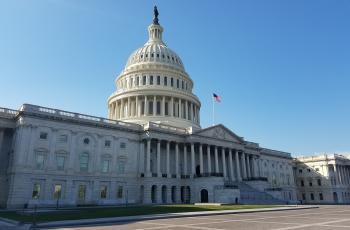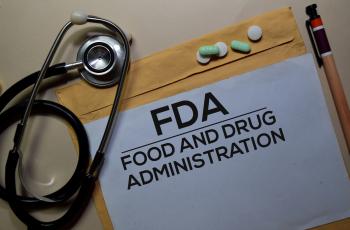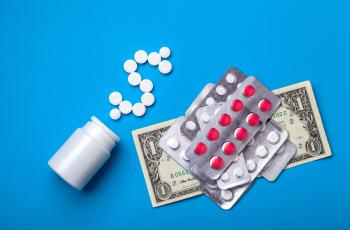Soda Tax Update: Where Does the Money Go?
Soda taxes aim to reduce consumption of sugary beverages, which are associated with increased risk of weight gain and developing type 2 diabetes. Revenue from soda taxes allows cities to invest in the health and success of their communities.
In This Article
Taxes on sugar-sweetened beverages (SSBs) – or more popularly known as soda taxes – are an increasingly popular public health measure aimed at reducing consumption of sugary beverages such as non-diet sodas, flavored juices, sports drinks, and sweetened tea. According to Harvard’s T.H. Chan School of Public Health, routine consumption of sugar-sweetened beverages is associated with increased risk of weight gain and developing type 2 diabetes. And with obesity now affecting 40% of Americans and obesity-related conditions (such as diabetes) on the rise, soda tax proponents hope that these measures will improve health outcomes and ultimately cut healthcare costs related to these conditions.
Many, many national health organizations, such as the American Heart Association, American Diabetes Association, and American Cancer Society, support soda taxes. For example, Dr. Laura Schmidt of the University of California at San Francisco succinctly points out that "What’s great about soda taxes is that they do two things at once for health: nudge consumers away from buying these unhealthy products while raising funds from soda distributors to cover programs that address the health harms of their products." Furthermore, despite pushback from the retail and beverage industries, who largely argue that soda taxes disproportionately affect low-income communities, reports demonstrate that tax revenue is being used to fund programs that bring back money to the community via healthy eating, fitness, and youth education initiatives.
Here in San Francisco, tax revenue has funded programs such as Sunday Streets SF – a free-to-the-public open street events that transform car-congested streets into car-free community spaces – and home-delivered meals for low-income residents and/or residents with disabilities through the Human Services Agency. Berkeley, the first US city to enact a soda tax, has used its revenue to revitalize a nutrition and gardening program at the Berkeley Unified School District that now reaches over 7,000 students. Philadelphia has taken a more education-centered approach by funding “community schools” that integrate social services and other support systems into school systems to remove barriers to learning. While it may be too early to say whether or not soda taxes are positively impacting people’s health, several studies report decreased rates of sugar-sweetened beverage sales and consumption in the communities where taxes have been implemented.
For a closer look at soda tax-funded efforts in five U.S. cities, see below!
Berkeley, CA
In November 2014, Berkeley residents voted in favor of a penny-per-ounce tax on distributors of sugar-sweetened beverages (SSBs) – defeating a $2.4 million opposition campaign by the American Beverage Association and becoming the first American city to adopt such a tax. According to a JAMA study, Berkeley saw a 21% drop in SSB consumption while neighboring cities saw a 4% increase, and a 63% increase in water consumption compared to only 18% in neighboring cities.
Since the tax officially took effect in 2015, the revenue has funded several community nutrition and health programs, the largest single program being a gardening program at the Berkeley Unified School District. The program “teach[es] students that taking care of the land and their body and understanding the importance of healthy food and the intricacies of a food system allows for the development of multiple intelligences and builds healthy practices,” according to a district report about the program’s efforts in fall 2014.
After losing a $1.9 million federal grant from the California Nutrition Network and suffering several cuts to its programming, the gardening program desperately needed the soda tax revenue – which amounted to $637,500 annually! – to provide necessary resources. This program operates as part of the 2020 Vision for Berkeley Children and Youth, a community-wide effort to end the racial disparities in academic achievement among children and youth in Berkeley, and offers students from preschool to seventh grade hands-on instruction in core subjects such as science, environment and nutrition. In 2015, there were 10 part-time garden instructors who worked side-by-side with teachers for 10-27 hours a week, reaching 5,811 students across 17 schools. As of 2017, the program now employs 13 educators and reaches a total of 7,000 students. Other programming has included inviting special guests such as cookbook author and food activist Bryant Terry to local schools to teach cooking classes and host workshops on food insecurity.
Soda tax revenue has additionally funded other smaller community programs:
- Healthy cooking and shopping classes for parents. These classes are organized through Healthy Black Families, a Berkeley-based non-profit dedicated to bringing about health equity for black infants, families, and communities. In particular, their “Thirsty for Change! Program” engages African American residents of South and West Berkeley with a broad array of fun and creative activities for families to improve the health of our community through nutritious foods, cooking, community gardening and art.
- A diabetes prevention program through the YMCA. Led by a YMCA-trained lifestyle coach, the program focuses on nutrition, exercise, and weight loss to reduce the risk for type 2 diabetes.
- A program to train youth interns to bring health education to the community. Through Berkeley Youth Alternatives, interns participate in an urban gardening program where they learn sustainable agriculture practices, produce handling and distribution, and nutrition education.
- Free reusable water bottles for Berkeley High students. 700 students of Berkeley High’s class of 2020 received free, stainless steel, reusable water bottles. Made by the Chico-based company Klean Kanteen, the water bottles were distributed at their freshman orientation by Youth Scholars from the Ecology Center’s Youth Environmental Academy.
Albany, CA
Approved by voters as part of the November 2016 General Election, Albany’s penny-per-ounce tax took effect on April 1, 2017. The tax raises just over $300,000 per year in revenue.
- Crossing guard program. Receiving 43% of funding, the program was seen as an opportunity to increase physical activity by creating an environment where it is safe for youth to walk or bike to school.
- Water bottle filling stations were the second largest program, receiving 31 percent of total revenue. These 6-8 stations will be installed in City Hall, Senior Center, Solano Avenue, San Pablo Avenue, and the Ohlone Greenway.
- “Free Classes in the Park.” The City of Albany Recreation and Community Services hosted fitness classes for all ages in various parks across the city, ranging from Tai Chi to Caregiver Bootcamp to Dance Party in the Park.
- Nutrition and cooking classes. Featuring “Classic Thai Cooking,” “Healthy Thanksgiving Side Dishes,” and “What’s in Season for Your Kitchen” for adults and “Chopped Junior” for kids, Albany offers this diverse range of cooking classes free-of-charge to its residents.
San Francisco, CA
San Francisco’s penny-per-ounce soda tax, known as Proposition V, took effect January 2018 and raised $12.3 million in the 2018 calendar year.
- Health and wellness programs from the Department of Public Health, including the Black/African American Wellness and Peer Leadership (BAAWPL) program, healthy eating & active living programming, active transportation and pedestrian safety program, and Sunday streets program.
- The Black African American Wellness and Peer Leadership program funds two organizations (Rafiki and Bayview Y) to achieve the following vision: achieve health equity and outcomes through a spectrum of prevention activities that address community, individual, policy, and systems changes. The program incorporates these key approaches to the work: trauma informed; holistic health; resident/community driven; outcomes driven; cultural/racial humility and collective impact.
- Sunday Streets SF: Sunday Streets is a series of free open street events that empowers local communities to transform 1-4 miles of car-congested streets into car-free community spaces for kids to play, seniors to stroll, organizations to connect and neighbors to meet. 2019 programming includes events in the Mission, Excelsior, Tenderloin, Golden Gate Park, SoMa, and more.
- Peace Parks from the Recreation and Parks Department. Located in Sunnydale, Hunter’s Point, and Potrero Hills, the Peace Parks program targets 18-25-year-olds living in and around public housing. They have hosted over 3,000 hours of programming: healthy food programs and over 200 hours of barber shop/beauty shop services, 500 hours of TAY Basketball League, 200 hours of swim lessons & lifeguard training, over 800 hours digital beat making, 400 hours of dance class, 560 hours of boxing, 20 hours of family movie nights, and 50 hours of outdoor enrichment excursion. In terms of community impact, Peace Parks has hired 24 staff members from the community, assisted six families with housing, and hosted over 200 hours in job readiness training for youth. Participants reported feeling a sense of safety and togetherness as a result of Peace Parks programming.
- Home Delivered Meals from the Human Services Agency. Tax revenue increased funding for nutritional supports for low-income, disabled, and senior residents.
- Other programs, ranging from Family Violence Services to Healthy Corner Store Retail to day laborer mental health support in the Mission, have been funded in smaller amounts. See the full report here.
Seattle, WA
Seattle’s soda tax took effect January 2018, charging 1.75 cents per ounce and raising $17 million in its first nine months. Annually, it raises just shy of $23 million in revenue.
- Fresh Bucks, Food Action Plan. The Fresh Bucks to Go program provides fresh, local fruits and vegetables delivered every other week to families participating in Seattle's subsidized preschool programs. By matching SNAP/EBT (food stamps) benefits dollar-for-dollar up to $10 at all participating farmers market locations in Seattle and King County, Fresh Bucks aims to make fresh fruits and vegetables more affordable. The Fresh Bucks program is a part of the larger Food Action Plan, which lays out strategies to increase Seattle residents’ access to healthy food.
- 13th year Promise Scholarship. From 2008 to 2018, the scholarship guaranteed that all graduating seniors from participating area high schools had the opportunity to attend South Seattle College tuition-free for one year, with a support network in place to help them navigate the transition from high school to higher education and forge a path toward a successful career. Today, the program is known as the Seattle Promise Scholarship and offers up to two years of support and tuition coverage at the student’s choice of Seattle Colleges. Any Seattle public high school graduate is eligible, with the aim of increasing access to higher education for Seattle’s students, particularly those from underrepresented groups including students of color, low-income students, and first-generation college students.
- Innovation and Linkage Schools. Schools that receive funding to become “Innovation” or “Linkage” schools implement strategies to reduce disciplinary actions, improve attendance, adopt a more rigorous curriculum, and improve college and career planning. Strategies include extended day and summer learning, social and emotional supports, math and literacy interventions, and culturally responsive programming.
- Our Best. This Seattle initiative aims to improve the well-being of young African American men by investing in education, positive connections to caring adults, employment, health, and safety.
- Parent-Child Home Program. This program provides literacy education to two- and three-year-old children from low-income families. The proposed budget will serve nearly 600 children.
Philadelphia, PA
Philadelphia’s soda tax – 1.5 cents per ounce – took effect in January 2017 and reduced supermarket sales of sweetened beverages by 38 percent according to a Journal of the American Medical Association study. The tax raised a whopping $77 million annual revenue – the highest of all the cities with soda taxes.
- Quality pre-K programs. Also known as PHLpreK, funding has supported the creation of 4,000 slots that provide free, quality pre-K to children ages 3-4, with plans to expand to 5,500 seats by fall 2023. Quality pre-K includes a safe, well-equipped classroom staffed by trained teachers and careful attention to both the child and parental engagement. Additionally, quality pre-K is linked to better health outcomes, increased graduation rates, and higher earning potential.
- Community schools. Community schools earn a five-year budget of $36.4 million from Philadelphia’s Office of Education, which is funded by soda tax revenue. Philadelphia Mayor Jim Kenney recently named five new community schools, in addition to the twelve already-existing community schools. Each school receives a city-paid staffer to assess the school and community’s needs and bring targeted resources to these schools, with particular focus on embedding social services that remove barriers to learning – expanded medical services and after school programming, for example.
- Rebuilding parks, libraries, and recreation centers. Philadelphia’s “Rebuild” project is dedicated to improving community facilities by making physical improvements to existing structures, promoting diversity and economic inclusion in the rebuilding process, and engaging with community members to make the best improvements.


